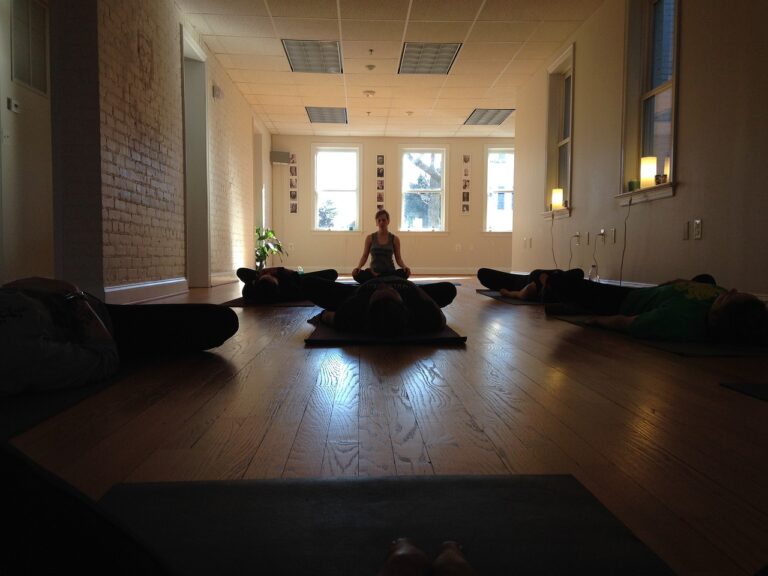Exploring the impact of drug resistance on tuberculosis control: Betbhai9 com sign up, Playexch, Gold365win
betbhai9 com sign up, playexch, gold365win: Rheumatology and Mindfulness-Based Stress Reduction: Techniques for Relaxation
Living with a rheumatologic condition can be challenging, both physically and mentally. The pain, stiffness, and fatigue that often accompany these conditions can take a toll on your overall well-being. However, incorporating mindfulness-based stress reduction techniques into your daily routine can help you manage your symptoms and improve your quality of life.
What is mindfulness-based stress reduction?
Mindfulness-based stress reduction (MBSR) is a technique that involves being fully present and aware of your thoughts, feelings, and bodily sensations in the present moment. Through mindfulness practices such as meditation, deep breathing, and body scans, you can learn to calm your mind, reduce stress, and cultivate a sense of peace and relaxation.
How can mindfulness benefit rheumatology patients?
For individuals with rheumatologic conditions, mindfulness can be a powerful tool for managing symptoms and improving overall health. Research has shown that mindfulness practices can help reduce pain, inflammation, and stress levels in individuals with conditions such as rheumatoid arthritis, fibromyalgia, and osteoarthritis. By learning to focus on the present moment and cultivate a sense of acceptance and compassion, you can learn to better cope with the challenges of living with a chronic condition.
In addition to physical benefits, mindfulness can also improve your mental health and emotional well-being. By practicing mindfulness, you can reduce anxiety, depression, and feelings of isolation that often accompany chronic illness. Mindfulness can help you develop a greater sense of resilience, self-awareness, and emotional regulation, leading to an overall improvement in your quality of life.
How to incorporate mindfulness into your daily routine
If you’re interested in incorporating mindfulness into your daily routine, there are several simple practices you can try:
1. Mindful breathing: Take a few moments each day to focus on your breath. Close your eyes, inhale deeply through your nose, and exhale slowly through your mouth. Notice the sensation of your breath as it enters and leaves your body, and let go of any distracting thoughts or worries.
2. Body scan: Lie down in a comfortable position and slowly scan your body from head to toe, paying attention to any areas of tension or discomfort. Take note of any sensations you experience without judgment or resistance, and practice letting go of any physical or emotional tension you may be holding onto.
3. Mindful movement: Engage in gentle, mindful movement practices such as yoga, tai chi, or qigong. Focus on the sensations of your body as you move, and allow yourself to connect with the present moment through movement and breath.
4. Meditation: Set aside a few minutes each day to practice meditation. Find a quiet, comfortable space, sit or lie down, and focus on your breath or a specific object of focus. Allow your thoughts to come and go without attaching to them, and cultivate a sense of calm and presence.
FAQs
Q: How often should I practice mindfulness?
A: It’s important to practice mindfulness regularly to experience the full benefits. Aim to practice mindfulness for at least 10-20 minutes each day, and gradually increase the duration as you become more comfortable with the practice.
Q: Can mindfulness cure my rheumatologic condition?
A: While mindfulness can help you manage your symptoms and improve your overall well-being, it is not a cure for rheumatologic conditions. It is important to work closely with your healthcare provider to develop a comprehensive treatment plan that addresses your physical and mental health needs.
Q: I have trouble focusing during mindfulness practices. What should I do?
A: It’s common to experience distractions and racing thoughts during mindfulness practices. If you find it challenging to focus, try gently guiding your attention back to your breath or a specific point of focus. Remember, mindfulness is not about achieving perfection but rather about cultivating awareness and acceptance of your present experience.
In conclusion, mindfulness-based stress reduction techniques can be valuable tools for individuals living with rheumatologic conditions. By incorporating mindfulness practices into your daily routine, you can reduce stress, manage symptoms, and improve your overall quality of life. Remember to be patient and compassionate with yourself as you explore mindfulness and its benefits for your health and well-being.







